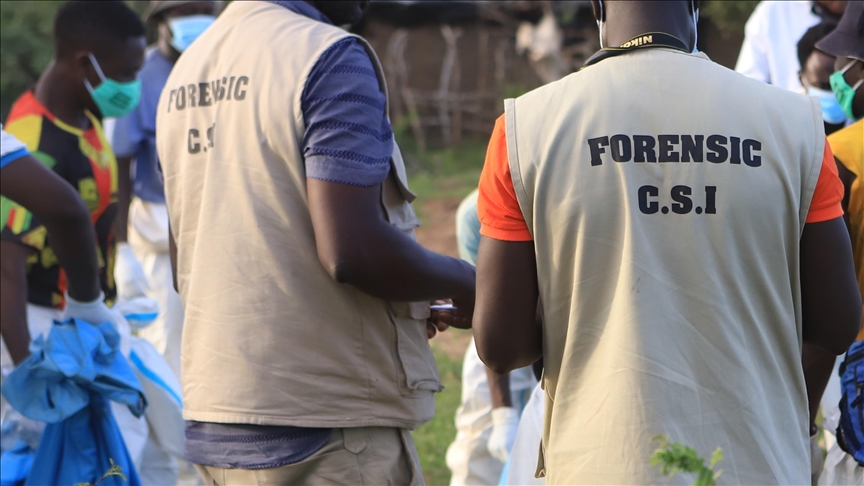Shakahola massacre: Murkomen explains DNA sampling delays

Murkomen clarified that the primary challenge in identifying the victims is not financial but rather the insufficient number of family members coming forward to provide DNA samples.
Interior Cabinet Secretary Kipchumba Murkomen has responded to claims that a lack of funding is causing delays in the identification of over 450 victims from the Shakahola massacre.
The victims, followers of cult leader Paul Mackenzie from Kilifi’s Good News International Church, were discovered in mass graves in Shakahola Forest.
Despite their bodies being stored at the Malindi Sub-County Hospital mortuary since April 2023, Murkomen insisted that the government has sufficient resources to conduct DNA sampling and identification.
Speaking in Mombasa on Tuesday, Murkomen clarified that the primary challenge in identifying the victims is not financial but rather the insufficient number of family members coming forward to provide DNA samples.
He pointed out that out of more than 336 DNA samples processed so far, only 66 have yielded positive matches, urging more people to participate in the identification process to allow for the release of the bodies for burial.
"The main issue in the Shakahola case is not funding. The biggest challenge is the low number of people coming forward to provide DNA samples that can be matched with the remains exhumed from Shakahola Forest," Murkomen explained.
He emphasized that financial resources are primarily needed at the Government Chemist and the Directorate of Criminal Investigations (DCI) forensic laboratory to expedite the process.
"That’s why I visited the Government Chemist in Mombasa. We have plans to expand and modernise the facility and equip it with up-to-date tools and technology," he added.
Murkomen’s statement, however, runs contrary to the experiences of some affected families who have voiced their frustration.
One such family member, Jimmy Mganga, shared his ongoing struggle to find closure after losing his father, mother, and three siblings in the Shakahola tragedy.
Mganga, who provided his DNA sample in May 2023, told a Mombasa court that he had not received any results and had been informed that there were no reagents available to complete the identification process.
"I am pleading with the government to finalize this process so I can know what happened to my parents and siblings," he said.
"We need to confirm whether their bodies are among those stored in containers at the Malindi mortuary. We need closure."
Despite the government's assurance of adequate funding for the process, several families have reported that the DNA samples they provided have not matched any of the remains at the mortuary.
One family member, who continues to search for their missing relatives, expressed disbelief over the delays.
"My brother’s five children (aged between 16 and 1 year) are still missing. Each time we go to check at the morgue, we are told the DNA samples provided have not matched any of those profiled," they said.
The situation has left many families in a state of uncertainty as they continue to await the results of DNA tests to confirm whether their loved ones are among the victims of the Shakahola massacre.
